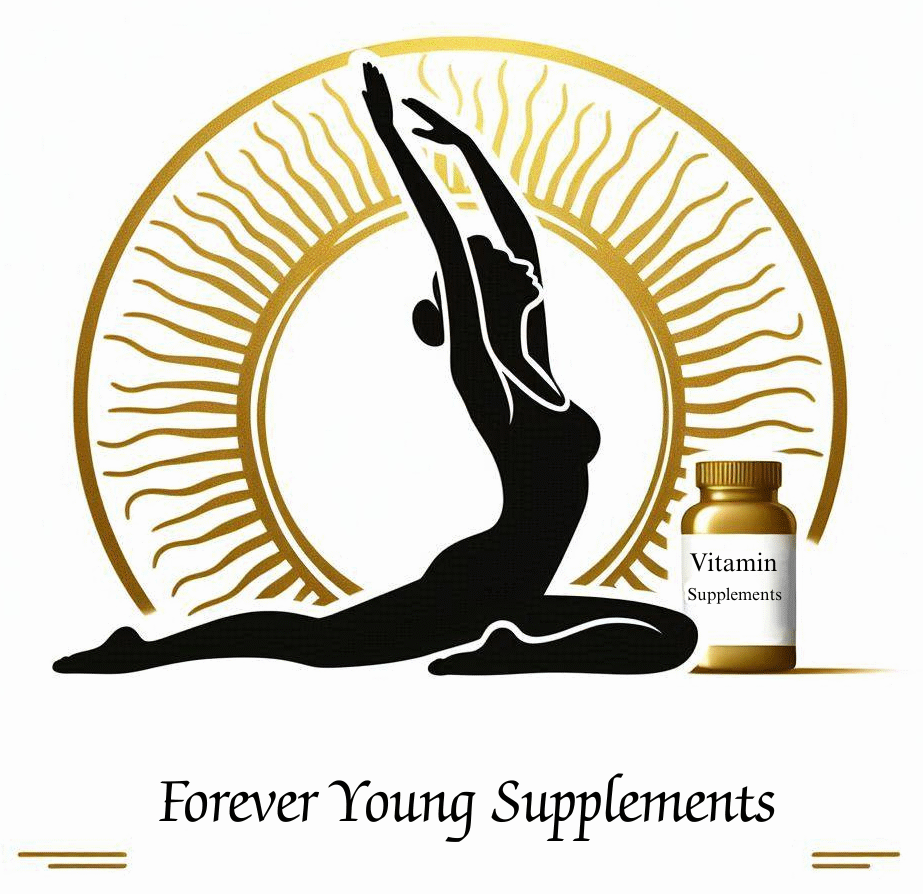As we get older our aging process can throw a few challenges and complications at our immune system. It is like the body’s defense system gets a little sluggish over time, which means it iss easier for nasty bugs and illnesses to break through the defence gates. Immune response weakens and recovery from colds and infections slows down. Recognizing these changes is the first step in tackling them head on.

Vitamins become the all star players when boosting immunity, especially for seniors. Think of them as the much needed reinforcements for that defense squad. Essential vitamins like C and D work together to keep the immune system alert. Vitamin C is like the frontline hero because it helps in the production of white blood cells. Vitamin D, on the other hand, makes sure the immune system isn’t overzealous and keeps things balanced.
Seniors often struggle with nutrient absorption, so skimping on vitamins isn’t ideal.
B vitamins, including B6 and B12, are crucial in maintaining the robustness of the immune response too. They aid in the production of new red and white blood cells. So, it’s essential to keep these levels in check through diet or supplements.
Addressing these changes with vitamins isn’t just about popping pills. It involves paying close attention to diet, ensuring it’s rich in fruits, vegetables, and fortified foods. Not only does this help strengthen the immune system, but it also supports overall health. The more you know about how these vitamins work, the better you can arm yourself against immune challenges.
Incorporating these vitamins into daily life can feel empowering. It’s like giving the body’s immune system a little pep talk and reminding it to stay on guard. Keeping informed and making conscious choices plays a huge role in maintaining health and vitality as one ages.
Strategies for Enhancing Immune Function in Seniors
Boosting immunity in seniors can be achieved with some simple yet effective lifestyle tweaks. Nutrition tops the list. Making sure that a diet is balanced and rich in colorful fruits and veggies not only provides vitamins but also necessary antioxidants. These little warriors fight off free radicals and help keep cells in top shape.
Exercise isn’t just good for the heart; it gives the immune system a kick too. Regular physical activity, even a daily walk or some chair exercises, can increase circulation and get those immune cells moving more efficiently. It’s like giving the body a gentle nudge to stay active and alert.
Rest is crucial, but it’s not just about quantity. Quality sleep helps the body repair and rejuvenate, supporting the immune system. Setting a routine and creating a relaxing bedtime environment can make a huge difference. It’s like hitting the reset button every night.

Hydration is another critical aspect. Water helps to circulate nutrients to cells and flush out toxins. It’s the body’s natural cleanser, keeping everything functioning smoothly. Plus, staying well-hydrated just feels good – no need for dull, dry skin or unnecessary fatigue.
Finally, managing stress can’t be overlooked. Chronic stress is a known immune suppressant, so finding ways to chill out is key. Meditation, deep breathing, or just taking a moment to relax with a good book can keep stress in check and help your immune system stay on the up and up.
The goal is to adopt changes in a way that fits effortlessly into daily life. It’s about building habits that will lead to long-term benefits. With these strategies, improving immunity becomes less of a chore and more of a lifestyle choice.
Supplements with Anti-Aging Claims
Some supplements promise to be the fountain of youth, claiming not just to boost the immune system but to slow down aging too. Resveratrol often pops up in conversations about anti-aging. It’s a compound found in red wine and some berries, touted for its supposed ability to mimic the effects of a calorie-restricted diet, which some believe can extend lifespan.
Another big player in the anti-aging supplement scene is collagen, the protein that keeps skin looking youthful and joints feeling flexible. Many folks turn to collagen supplements to preserve skin elasticity and joint health as they age.
Coenzyme Q10, often abbreviated to CoQ10, is another supplement that’s been getting attention. It’s believed to support energy production in cells and act as an antioxidant, which might help reduce age-related cell damage.
While these supplements have garnered quite a buzz, it’s crucial to base decisions on science. The evidence supporting these claims is sometimes shaky. However, including such supplements, with guidance from a healthcare provider, might be beneficial when paired with a healthy lifestyle.
Being informed is empowering. Understanding what these supplements can and can’t do is key. It’s all about finding what works best for one’s health and lifestyle choices.
Top-Rated Supplements for Senior Immune Support
When it comes to bolstering the immune system, certain supplements stand out as crowd favorites. Vitamin C often takes top billing for its role in fostering the production of white blood cells, which are crucial for fighting infections. It’s like the poster child for immune health.
Vitamin D also gets a lot of buzz, especially for how it helps regulate the immune system’s response. Seniors can often face a deficiency due to less sun exposure, making supplementation a common recommendation.
Zinc is another heavy hitter. This mineral is essential for immune cell function, and studies suggest that it can reduce the duration of colds when taken at the onset of symptoms. Getting enough zinc through diet or supplements can act as a strong ally against seasonal sniffles.
Magnesium plays its part by supporting numerous bodily functions, including the immune response. It’s one of those nutrients that ensures everything keeps ticking along smoothly. Magnesium doesn’t always get the spotlight, but it’s a quiet hero in maintaining health.
Fish oil, with its omega-3 fatty acids, is more than just heart-healthy. It has anti-inflammatory properties that can contribute to optimal immune functioning. Adding fish oil to the mix can be beneficial for maintaining a balanced, harmonious immune system.
With so many options, it’s wise to find supplements that suit individual needs. Consulting with a healthcare provider can help navigate these choices effectively, ensuring that the supplements support overall health goals rather than complicate them.

The Reality Behind Immune Supplements: What Works and What Doesn’t
When it comes to immune supplements, it’s easy to get lost in the sea of options, each promising miraculous outcomes. But here’s the kicker: not all supplements perform at the level they claim. Scientific studies often show a mixed bag in terms of efficacy, making it crucial to separate fact from hype.
Many supplements, like vitamin C and zinc, have robust backing for their ability to support immune health. Yet, others might not have the same level of scientific rigor supporting those shiny labels. Claims of boosting immunity need to be taken with a grain of salt and backed by hard facts.
Understanding what’s effective means diving into the research. The best picks are those supported by human trials and peer-reviewed studies. For instance, while elderberry and echinacea are popular, research results are varied, warranting caution when choosing them for immune support.
Relying solely on supplements also misses the bigger picture. A healthy lifestyle forms the backbone of any immune-support strategy. A balanced diet, regular exercise, getting adequate sleep, and managing stress remain unmatched. Supplements should be the wingmen, not the heroes of the immune system story.
It’s about informed choices. Reading the fine print, reviewing the latest research, and working with healthcare professionals can help sift through the options. The key is an evidence-based approach rather than falling for marketing pitches, empowering individuals to invest in what truly supports their health.
Holistic Approaches to Strengthen Immunity and Slow Aging
Taking a holistic approach to boosting the immune system and slowing the aging process can integrate body, mind, and spirit for fuller health benefits. It’s all about weaving together a lifestyle that supports longevity without relying solely on quick fixes.
Mindfulness and stress reduction techniques, like meditation and deep breathing exercises, take center stage in this approach. They help reduce chronic stress, which can otherwise weaken the immune system over time. Just setting aside a few quiet moments each day to focus on the breath can pep up overall well-being and resilience.

Regular check-ups and vaccinations play a crucial role in a comprehensive health strategy. Staying on top of routine healthcare keeps things running smoothly and catches any small issues before they snowball into larger problems affecting the immune system.
The connection between mental health and immunity can’t be overstated. Positive relationships, engaging social networks, and keeping in touch with loved ones provide emotional support, creating an immunity-boosting environment. Loneliness and social isolation can negatively impact immune function, so nurturing connections with others is essential.
Diet and nutrition are vital, but so is keeping the digestive system happy. Probiotics, for example, maintain gut health which directly impacts immune function. It’s about covering all bases, ensuring the body’s defenses remain tough and ready for anything.
These holistic methods create a foundation that not only supports the immune system but fosters an overall sense of well-being. By embracing this integrative approach, maintaining health and vitality becomes a sustainable journey rather than a temporary fix.
Frequently Asked Questions
1. What are the best supplements for supporting the immune system in seniors?
Vitamin C, Vitamin D, Zinc, Magnesium, and Fish Oil are among the top supplements recommended for senior immune support. They help boost immune cell production, regulate response, and reduce inflammation.
2. Do anti-aging supplements like resveratrol and collagen actually work?
While supplements like resveratrol, collagen, and CoQ10 show some promise, the scientific evidence behind their anti-aging claims varies. They may offer benefits when paired with a healthy lifestyle, but they aren’t miracle solutions.
3. Can lifestyle changes improve immunity as much as supplements?
Yes. A balanced diet, regular exercise, quality sleep, proper hydration, and stress management are foundational for strong immunity. Supplements should support, not replace, these healthy habits.


Saschi,
Your site focuses the key nutrients and correctly highlights vitamin C, D, E, zinc, selenium, omega‑3s, probiotics, and elderberry, all of which are commonly discussed in senior immune health literature.
It also recognizes that aging impairs nutrient absorption and immune function, so supplemental support becomes much more relevant.
Would a holistic approach, by including micronutrients, healthy fats, antioxidants, herbal extracts, and probiotics, provide for a more integrated strategy?
The Forever Young Supplements article is well-meaning and highlights many promising ingredients for senior immune support.
Have you considered adding dosage guidelines and safety limits, or emphasising that supplements complement, not replace, a healthy lifestyle.
Kind regards,
Martin
Thank you for your thoughtful and insightful feedback. You havve raised some excellent points that underscore the importance of taking a truly integrated and well informed approach.
a holistic strategy that includes not just key vitamins and minerals but also healthy fats, antioxidants, probiotics, and herbal extracts can offer more comprehensive immune support, especially for aging populations. These elements work synergistically to strengthen immune resilience while also addressing the broader needs of cellular health, inflammation control, and gut balance. This is an area I will look into further and share in a later post.
I appreciate your point about the importance of dosage guidelines and safety limits. Including evidence based recommendations and clearly stating that supplements are meant to complement, and NOT replace, a healthy lifestyle is essential. Going forward, I will look to expand the content to incorporate more guidance on safe supplementation practices, including tolerable upper intake levels and the importance of consulting with healthcare professionals for personalized advice. I wiill always advocate seeking professional medical advice from a pracitioner that knows your medical history.
Thank you again for contributing to the conversation and helping to continue the discussion and sharing of knowledge to provide balanced, practical, and science informed wellness content for our readers.
Great post. I appreciate how clearly you’ve laid out the importance of immune support for seniors, and not just focused on supplements as a solution. For me there were 2 points that stand out: the emphasis on vitamin D’s role in immune modulation, especially for older adults who may get less sun exposure, and the inclusion of probiotics as a key player in gut-immune health. Both of these are in my opinion often overlooked – but so essential.
By the way excellent images you chose too!
Thank you so much for your thoughtful feedback and you are absolutely right to highlight the importance of vitamin D and probiotics. Vitamin D’s role in immune modulation becomes even more critical with age, especially given how common deficiency can be due to reduced sun exposure. It as a simple yet often underappreciated piece of the immune health puzzle and of particular significance to me who has Asian Heitage and living in the UK.
Gut health and immunity are deeply interconnected. Probiotics play such a vital role in maintaining that balance, and it is great to see more awareness around their importance for long term well being.
I also appreciate your kind words about the images and glad they helped bring the topic to life.
Thanks again for sharing your insights.